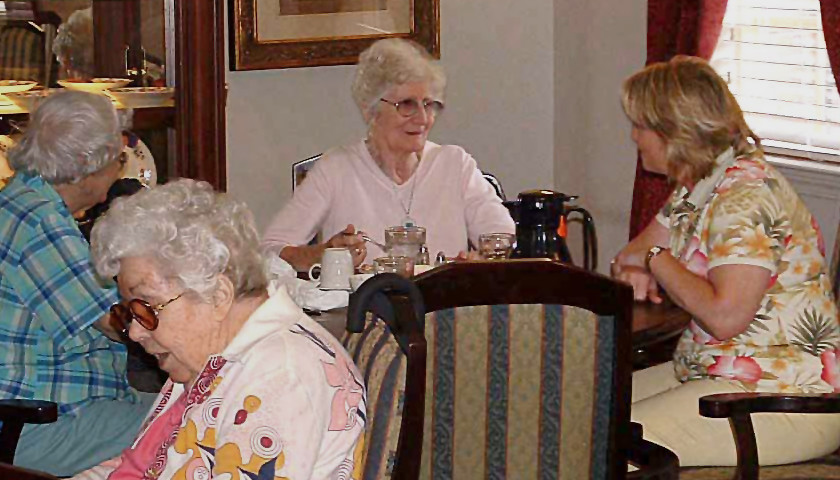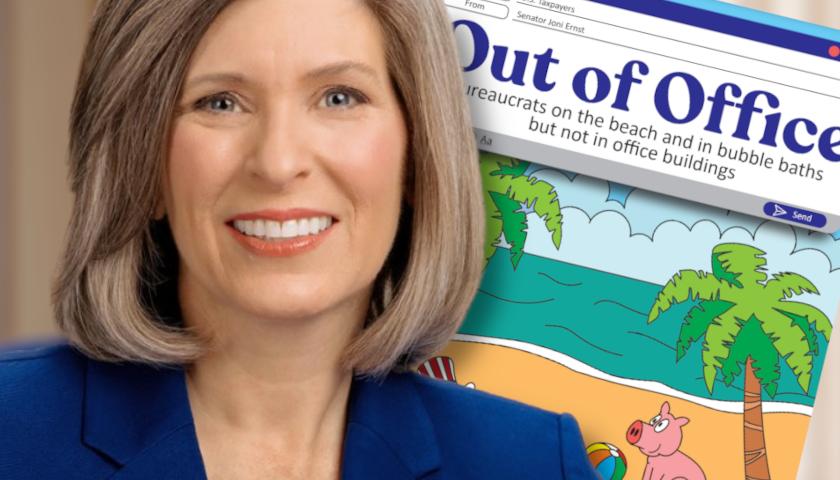by Helen Roy
One of Alexis de Tocqueville’s central observations in Democracy in America was that the American people tended to demonstrate strong instincts for civil society. Americans’ remarkable vitality, stemming from the family into all other areas of public life, undergirded the health of the democratic polity at large. Tocqueville admired it.
In some ways, this strength endures. While the novel coronavirus epidemic has laid bare the failures of certain American institutions, it has also, in many instances, revealed the essential greatness of the American spirit.
Amy Lynn Twyman Smith is the executive director of an assisted living network in Newark, Ohio. Her father died when she was 10 years old. Growing up, she was close with her father’s mother, who eventually developed Alzheimer’s disease. Amy saw first-hand just how important quality care was for her grandmother and her family. Her connection with her grandmother cultivated a passion in Amy that led her to work in assisted living for the entirety of her career.
“It can be hard on families,” she expressed. “I want our care to be the most wonderful experience anyone could have. And especially for our residents, I want every day to be wonderful, as if it was their last.”
Amy and her team manage two facilities, Sharonbrook and Chapel Grove, for 225 residents with various levels of need for assisted care. Many of their residents suffer from Alzheimer’s disease, dementia, or Parkinson’s.
In late February, when news of the Coronavirus outbreak in California and Oregan began to make waves, Amy began to plan. She and her co-leadership sat down and determined they likely would need to seal off their homes entirely from the outside world. They knew they could not wait for the virus to come to their doors; by that time, it would be too late.
In the beginning, they limited outside visitors, allowing only staff to come and go from their facilities. But by early March, as COVID-19 metastasized across the country, it was clear they needed to do more to protect their vulnerable residents.
So, to completely eliminate the possibility of exposure, 44 of Amy’s staff volunteered to move into their respective facilities to serve their residents around the clock. They found some empty space, set up bunks, and assigned everyone shower and laundry times. At noon on March 12, total shutdown began.
“At first, it felt a little bit like summer camp,” Amy confessed. “We had to learn everyone’s habits and routines.”
But the spirit of camaraderie and selfless service overcame whatever initial awkwardness moving in with one’s coworkers and clients might have generated.
“Every day,” Amy continued, “I just know coming in here that we’re making a difference. I truly love my staff and residents as family. It’s like taking care of our grandparents and moms and dads. When you have the staff that I have, with the same vision . . . it was so easy to lock down. There was no moment of hesitation.”
Thanks to thoughtful foresight and planning, residents and staff at Sharonbrook and Chapel Grove have experienced absolutely no sickness at all during the pandemic. While other nursing homes across the country have evacuated, Amy and her team remain onsite. They are doing what it takes to protect the most vulnerable members of their community: a beautiful example of charity in a time of great uncertainty for all.
– – –
Helen Roy is a D.C. and Carolinas-based consultant and writer.
Photo “Senior Assisted Living” by the US Air Force.





